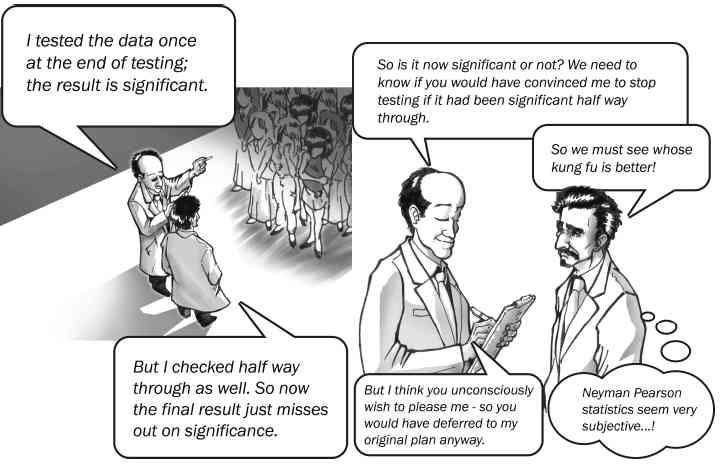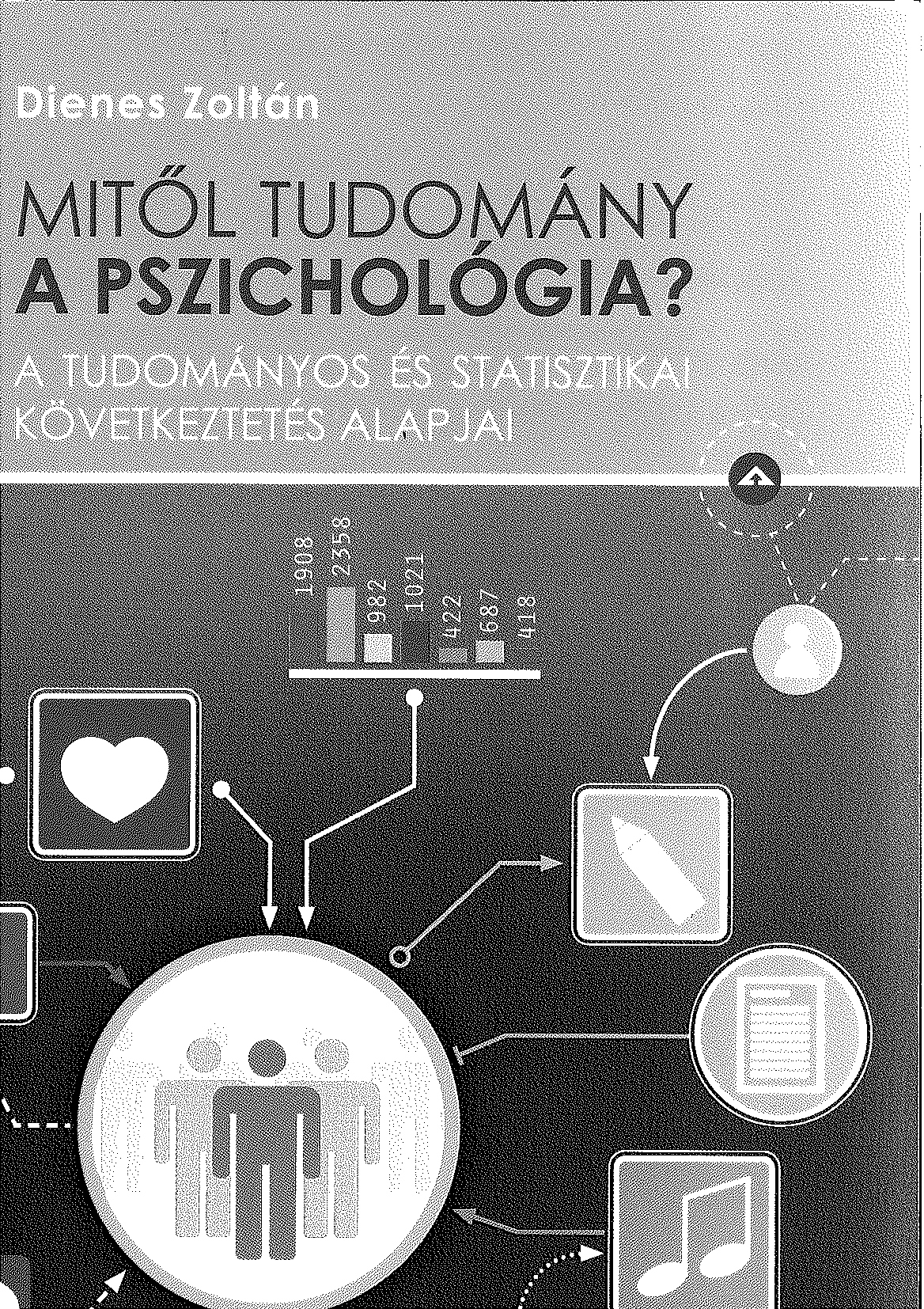

photo: Simine Vazire

Understanding psychology as a science shows how grasping philosophical ideas about scientific inference has important practical consequences. Popular misunderstandings and conceptual abuses of the orthodox approach to statistical inference are considered. As the orthodoxy comes under increasing attack, the book also shows how we could be approaching statistical inference completely differently, i.e. via the Bayesian or likelihood schools. The book enables psychology students to perform their own simple Bayesian and likelihood analyses to facilitate understanding of the underlying concepts. The strengths and weaknesses of the approaches are made available to everyone from the average psychology student to the seasoned researcher so that each person can at last make an informed choice. The relevance of the philosophies of Popper, Kuhn and Lakatos to research is also shown and each chapter provides advice on critical thinking to substantially improve students research skills. The book fills a gap in the education of our students that has existed far too long.
Contact the author: dienes@sussex.ac.uk
Contents. Click on each chapter for web material relevant to that chapter. Other than the preface, this material is not advertising nor excerpts from the book, but mainly more technical details useful to those who have read the book so they can better put the ideas into practice.
Chapter one: Karl Popper and demarcation
Chapter two: Kuhn and Lakatos: Paradigms and programmes
Chapter three: Neyman Pearson and hypothesis testing
Chapter four: Bayes and the probability of hypotheses (Click on this chapter for a BAYES FACTOR calculator)
Chapter five: Fisher and the likelihood: The Royall road to evidence (Click on this chapter for likelihood ratio calculators)
Glossary
An example assessment I give our Masters students; see also individual chapter links above for more assessments.
Translated into Japanese by professors Keiko Ishii and Sachiko Kiyokawa:

Translated into Chinese by professor Guo Xiuyan and colleagues:

Translated into Hunagrian by Miklos Kurthy (with technical checking by Aczel Balazs and Attila Keresztes):

"An engaging and provocative exploration of scientific
inference in psychological science -- one that lays bare the
conceptual underpinnings of our ways of thinking about these
matters and forces us to confront alternative perspectives.
Everyone who wishes to be clear about how well any scientific
position is supported by data will want to be sure they understand
the ideas presented in this book. Highly recommended for students
and professionals alike." "Overall this is
one of the most original teaching texts that we’ve had the
pleasure of reading for some time. It is well-structured and very
readable. For almost any level of psychology student it manages to
present the philosophical basis of statistics in a highly
approachable manner." "Quite
remarkable. A text book on research methods that actually explains
how science works, why it has the exciting texture that it does
and what the philosophical principles are that underlie it. It
will change the way in which research methods courses are taught
in the social sciences
"An engrossing read. Dienes
relates statistical controversies to general issues in the
philosophy of science, and in so doing puts common misconceptions
right. The book is full of advice that makes the difference
between a mediocre and expert researcher. Despite some difficult
passages I was drawn into the story and imagine that when reading
about statistics - remarkable! In sum: A very useful correction to
our typical methods courses for advanced undergrads, graduates,
and even many established researchers."
|
|
review in The Psychologist October 2008:
The way in which Dienes presents the conceptual debates and psychological principles in succinct, brief and coherent pieces allows the information to be digested in a much simpler manner than I remember through my own experience; and the cartoon-style portraits of Popper and Kuhn among others offer a reinvention of the usual style in which such thinkers are portrayed to students. This, along with the straightforward wording, allows the complex issues of philosophical principles, scientific inference, statistical testing and argument to be presented in a clear and accessible manner. The book excels in providing the reader with a substantial understanding of how theories emerge and are tested. Furthermore, the nature in which Dienes examines the logic, assumptions and inferences of the most frequently used statistical tests allows us as researchers to ensure that we are employing the most rigorous of approaches within our own research. Overall this is an exceptional overview of the scientific principles that underpin the discipline, and should be welcomed by teacher, researcher and undergraduate psychology student alike. Helen Henshaw |